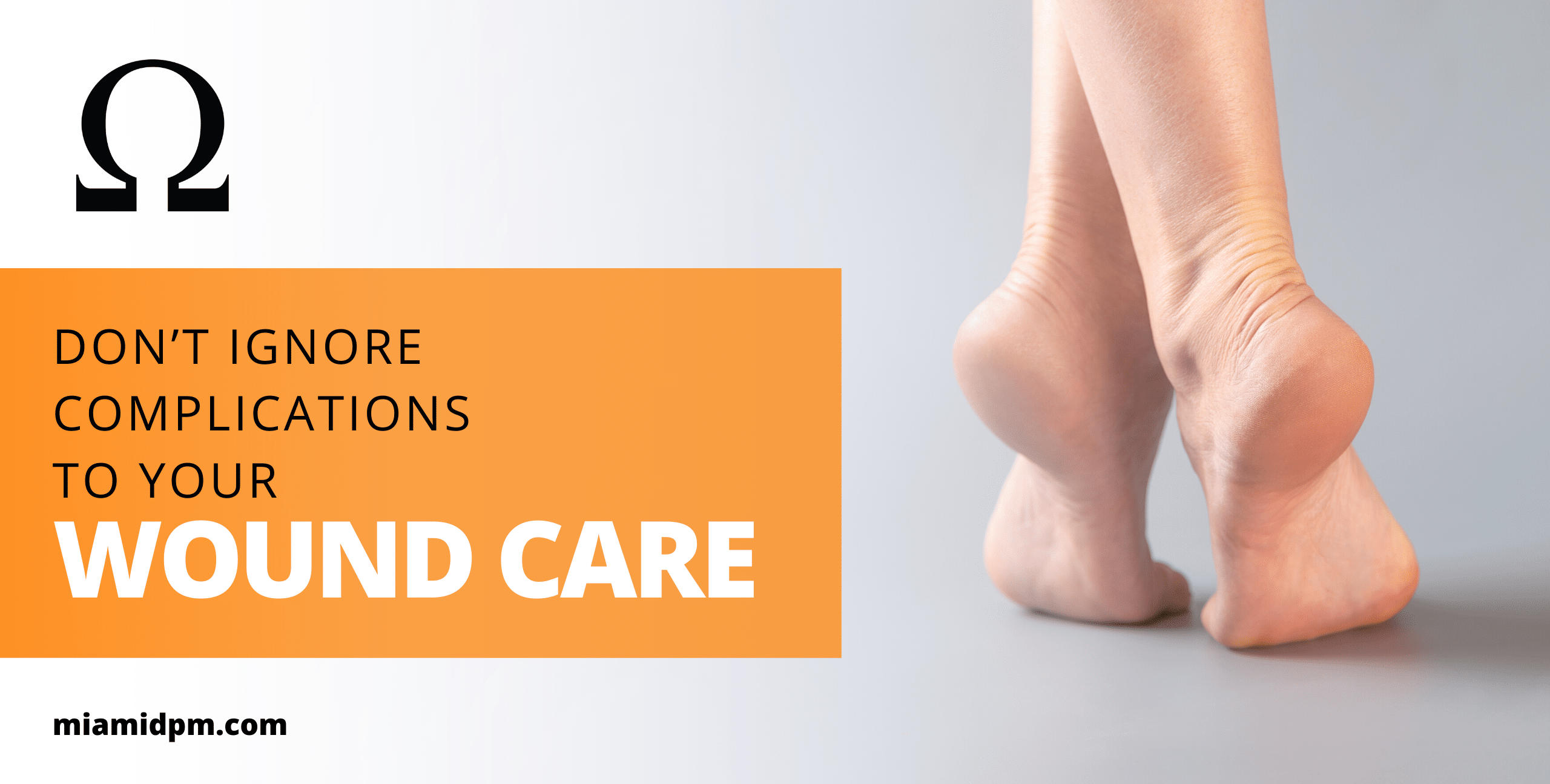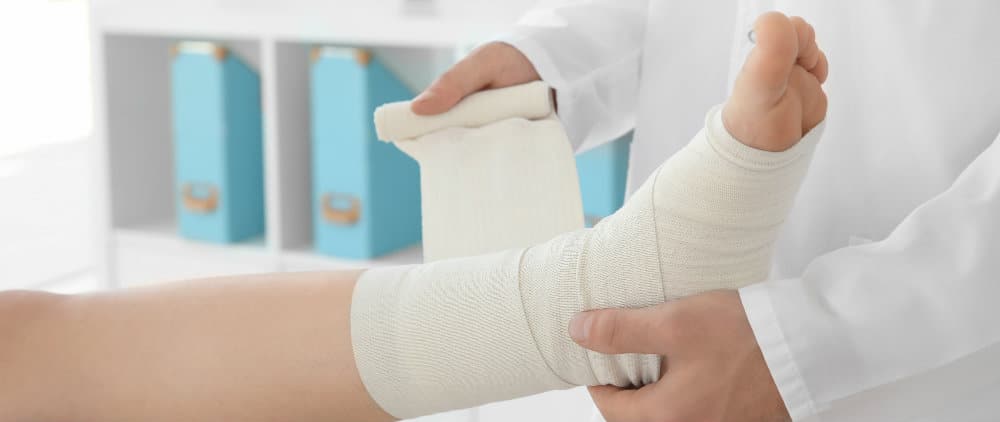Don’t Ignore Complications to Your Wound Care
A wound anywhere on your body is certainly not a good thing to have, but any that develop on your feet can be particularly dangerous – especially if diabetes, poor circulation, or other complicating health factors are in the picture.
The danger of such situations is so considerable that the threat of wounds to the feet deserves daily consideration. Yes, wound care should be administered promptly and professionally if and when a wound develops, but it is even better to greatly reduce your risk of wounds developing at all.
If you have diabetes, peripheral arterial disease (PAD), or other conditions that can make damage to your feet riskier for your overall health, it is never too early to contact us. We can not only be your source for go-to treatment when needed, but also help you develop an effective plan for preventative care.

The Dangers of Wounds to Feet
If you think of your body as a fortress, your feet are a surprisingly vulnerable area for attack. Why is this?
For one, they are the farthest spot from the “supply line” of your heart. Under normal circumstances, it is already somewhat of a challenge for oxygen, growth factors, nutrients and other necessities to be fully supplied to the feet by your bloodstream. Conditions like diabetes and poor circulation make the problem worse.
Second, that distance also makes your feet difficult to keep an eye on. It’s pretty easy to see an injury on your arm or knee or even your face with how many mirrors are around us. The undersides of our feet, however, are more likely to escape close attention, and we often rely more on our sense of touch to determine when something is wrong.
Diabetes and vascular problems can complicate matters even further in two major ways:
- Interfering with blood flow. By constricting and/or blocking arteries, a challenging trip for blood to reach the feet becomes even more difficult. With reduced blood flow, cells on the “front lines” of our feet can’t function as well. This means wounds can take longer to heal, or don’t even heal at all without intervention.
- Killing nerves and sensation. Nerves under attack from poor circulation and diabetic complications become damaged. This can start out causing pain and other sensations, but eventually results in numbness. Once sensation is lost, the typical means for discovering an injury to your foot vanishes as well.
Once the defenses are down, so to speak, your feet become much more vulnerable to further damage and invasions.
If you don’t realize you have a foot injury and keep walking on it, the weight and pressure can force it wider and deeper, resulting in an ulcer. And the longer any wound goes without attention, the more likely it is to become infected – and that has led to very serious situations for many people.
When You Have a Wound
Daily inspection of your feet is critical to detecting wounds and other injuries. Once again, it’s never too early to make this a habit – it literally saves feet!
If you do detect an injury or other abnormality, call us right away. We might ask you to keep an eye on it, but any situation that draws concern is one we will recommend you come in right away for a closer evaluation.
The sooner a wound is properly treated, the lower the risk of infection and the greater the chance of faster healing. Typically, wound treatment involves:
- This is essentially cleaning the wound of any foreign materials, debris, dead skin, and bacteria.
- Dressing the wound, using antibiotics and appropriate bandages.
- Keeping weight off the wound to help prevent it from worsening. This might involve the temporary use of crutches, a walking boot, orthotics, or other equipment based on the location and severity of the injury.
We will recommend further actions to take as part of recovery. In most cases, the wound care dressings we use do not require daily changes, but will still need to be tended to in certain ways over time. Oral antibiotics and other medications may also be recommended to help lower infection risks.
Follow-up appointments will often be required in order to check up on the progress of healing, reapply dressings, and perform any additional debridement if necessary.

Keeping it All in Check
Responding to wounds themselves is very important, but the more preventative care that can be taken to avoid them in the first place, the better.
That means regulating blood sugar levels and maintaining vascular health as best as possible. We have a vested interest in the vascular health within your lower limbs, and can help you develop a plan that keeps you safely active and your circulation healthier – all without adding extra risks to your foot and ankles.
Wound Care is a Priority
If you have a wound that needs attention, do not hesitate to contact us right away! Call us at (305) 514-0404 to schedule an appointment with us.
Also, do not forget that telemedicine appointments are an option that can allow us to visually check on your feet while you remain in the comfort of your own home! They can be a great help for us in determining whether you should come in for further treatment, and we are happy to accommodate you with one should it be reasonable for the situation.
